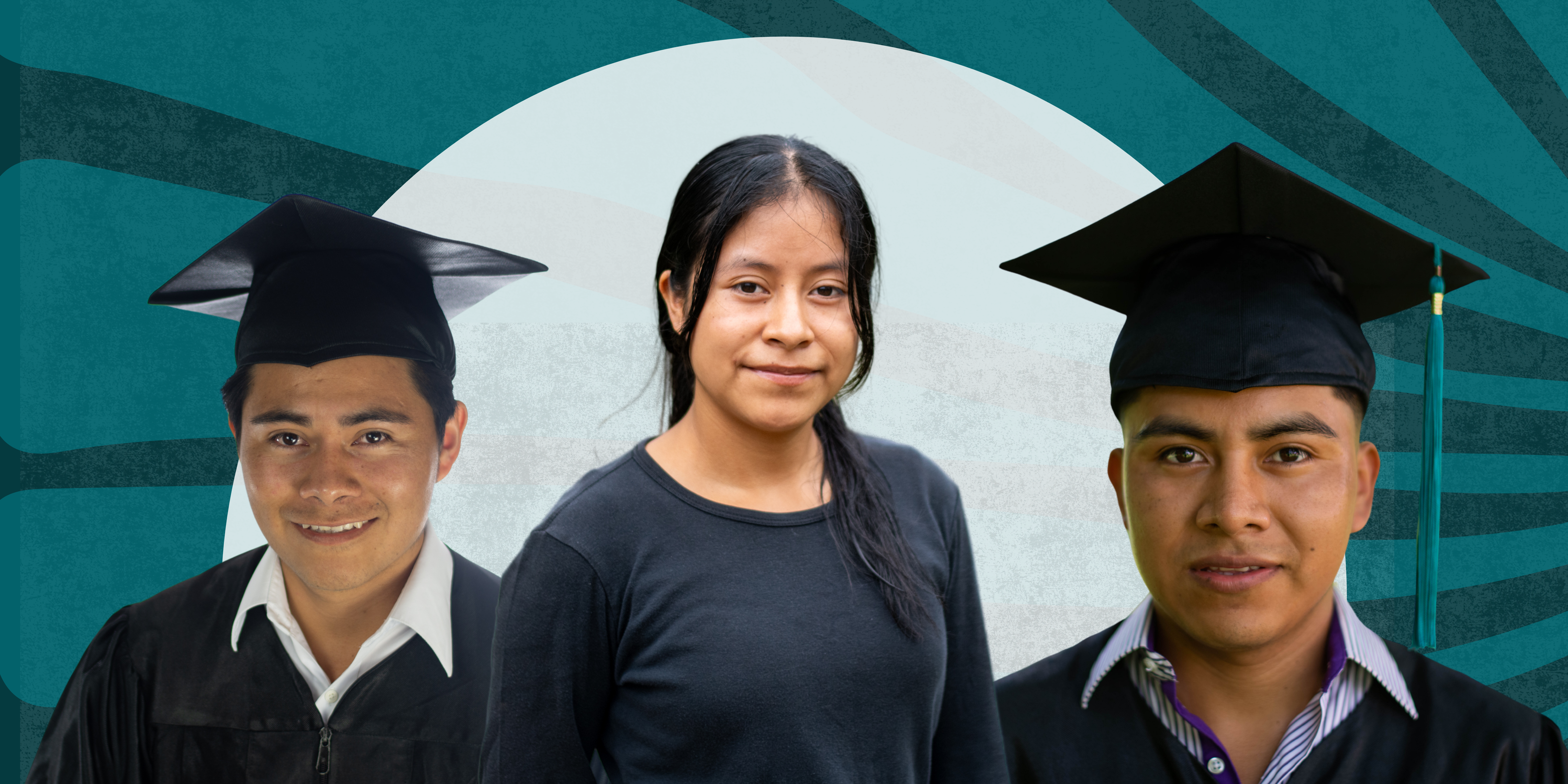Manuel Gómez (Class of 2018, Mexico) was the family pioneer. In 2015, his curiosity about the world pushed him beyond the limits of his community, where coffee and corn were the livelihood. He wasn’t satisfied with selling his family’s harvest to middlemen who paid little and took the profits. He wanted to learn how to transform the coffee they cultivated with dedication into something of their own—something bigger.
On the day his new journey began, he took several buses to leave his home of San Juan de Cancuc, a municipality in Chiapas where 90% of the population speaks an Indigenous language. His community is nestled in the mountains, far from the fast-paced life of the cities. That’s why, when Manuel took his seat on the plane from Mexico to Costa Rica, he knew this flight wasn’t just a trip to another country; it was a leap of faith, an opportunity to open doors for a future in which his community would also be included.
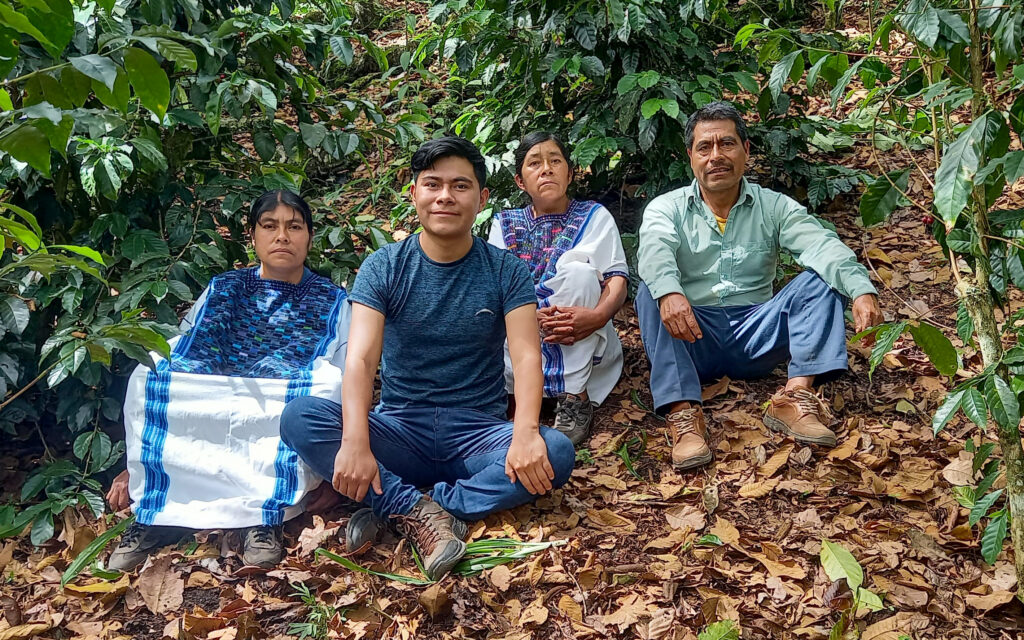
Manuel arrived at EARTH University five months before the academic year began to participate in the Spanish and Cultural Immersion Program, where non-Spanish-speaking students learn the language while living with families in the communities near the Guácimo Campus. Manuel spoke, thought, and dreamed in Tseltal, a Mayan language. He was Mexican, but he knew very few words in Spanish.
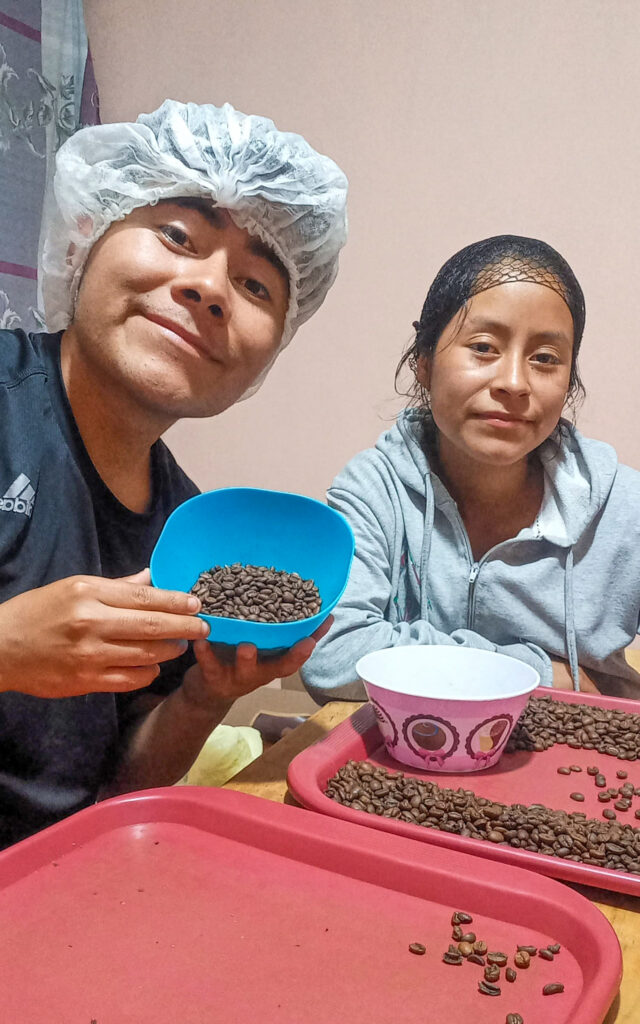
His first real contact with the language happened at EARTH, hundreds of kilometers from his hometown. A Costa Rican family welcomed him during those months and patiently and lovingly taught him to name things, feelings, and places. He attended language classes alongside other students in the program, but there were no other Mexicans or Tseltal speakers—there were Nigerians, Ethiopians, and Kenyans. His mind expanded.
In just a few weeks, he learned about religions he had never heard of, foods he had never tasted, and realities he had never imagined. When he returned home to his country, he was no longer the same. And he applied what he had learned. Over time, he stopped selling coffee to intermediaries and began marketing his own brand. For the first time, his family’s work had a name and a face: Skaj-Pel, a coffee produced by Indigenous hands, sustainably grown, and held to high-quality standards.
A number of years later, his brother Antonio Gómez (Class of 2022) followed the same path. Antonio dreamed of exploring the world, learning about new cultures, and expanding his knowledge. But his first attempt to enter EARTH was unsuccessful. The rejection letter hit hard, but he didn’t give up. He tried again, and the second time, he was accepted. At EARTH, he found diversity. Interacting with students from other countries opened his mind and led to new opportunities.
After graduation, his curiosity took him even farther—to the United States. He now works in Illinois, learning about large-scale pig farming. Sometimes he misses the mountains of Chiapas, but he knows his path isn’t linear. He is gathering knowledge, connections, and tools. And even though he is far away now, his eyes are always set on returning with something valuable for his community.
And now, Manuel and Antonio’s younger sister, Marcelina Gómez (Class of 2027), is studying at EARTH. Marcelina found it hard to believe she could follow in her brothers’ footsteps. She applied to EARTH with hope but also skepticism. When she was finally accepted with a full scholarship, she couldn’t believe it. Her brothers never told her much about the university because they wanted her to have her own experience, free of preconceived ideas. And she did.
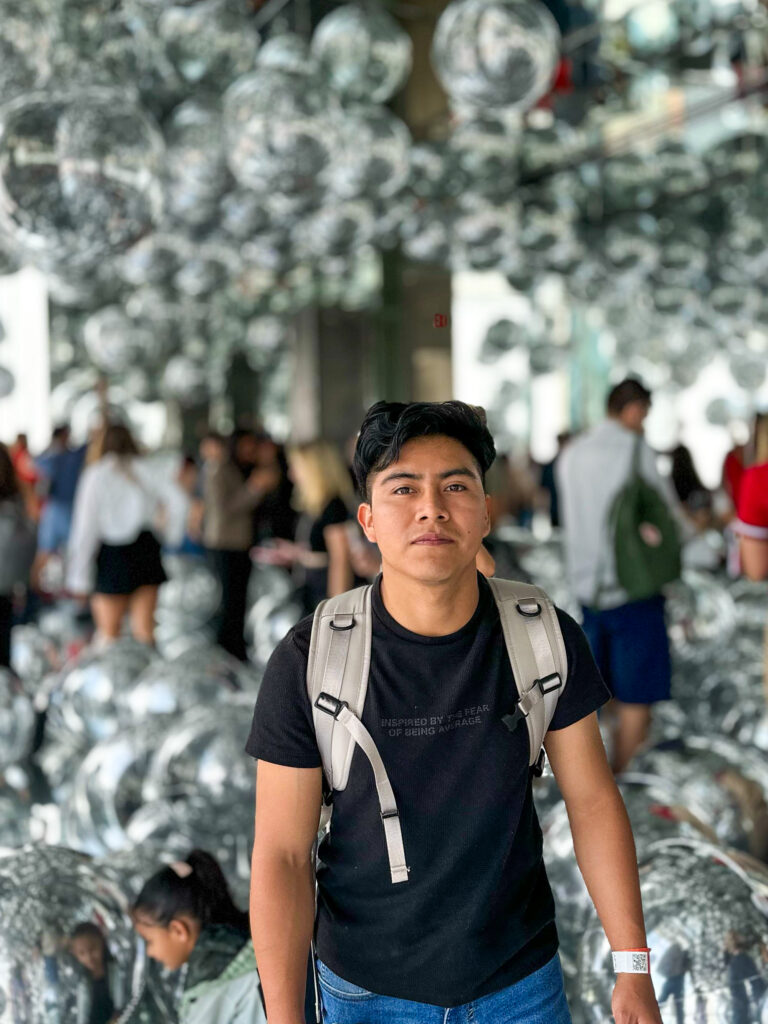
The road wasn’t easy—it never is for those who come from far away, not only in distance but in opportunities. “In our town, studying is difficult; few manage to do it,” Marcelina explains. “When two of my brothers got into EARTH, that became my dream too. My parents don’t have the resources to support us, so we sought a scholarship. But I felt that studying in another country was beyond my reach. Today, I’m here, and I feel special. I know that not many have this opportunity, and like my brothers, I have a full scholarship from the Kellogg Foundation that covers the full program. I lack nothing,” she adds.
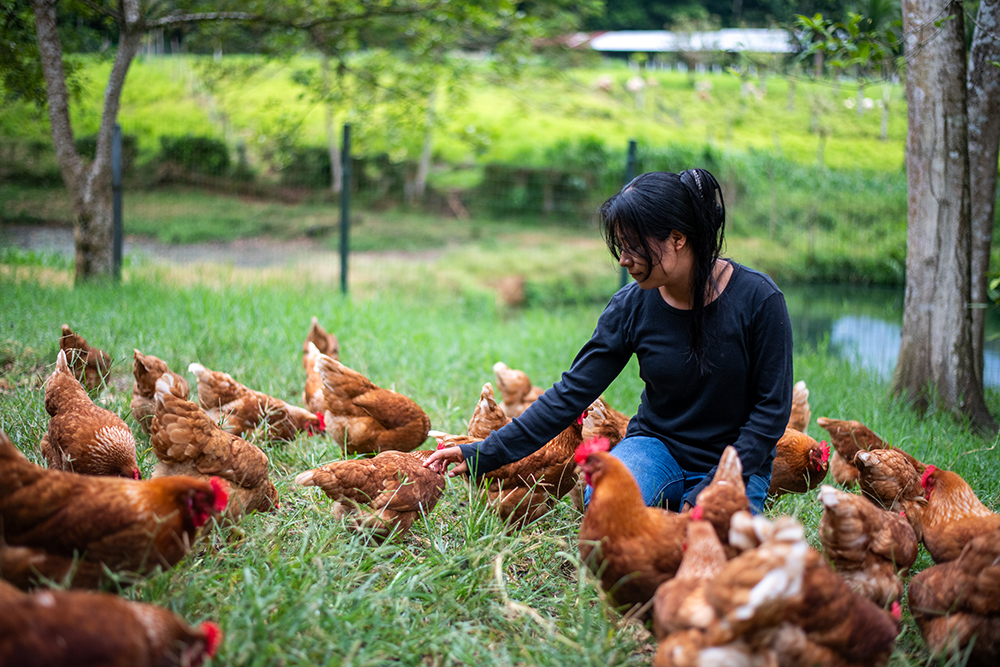
Adapting wasn’t easy. At first, classes were a huge challenge. Her grades were low, and it was frustrating for her to struggle with Spanish—having to learn chemistry, genetics, and math in a language that felt foreign. But she didn’t give up. Every night, she studied harder, and every day, she worked to prove that she could do it. Now, she dreams of gaining experiences and knowledge to work alongside Manuel and the rest of the family in coffee production.
For the three of them, attending EARTH wasn’t just about earning a degree—it was about discovering a new way of life, new customs, and, most importantly, a new way of thinking. They grew up on the same land, in the same mountains, hearing the same stories about their town. But each has taken their own path, with one shared certainty: education changed their lives.
Manuel became an entrepreneur. Antonio explored. Marcelina believed in herself. These three EARTHians are proving that our destiny is not set in stone. It can be rewritten—with effort, with courage, and with a strong desire to return to where it all began.
